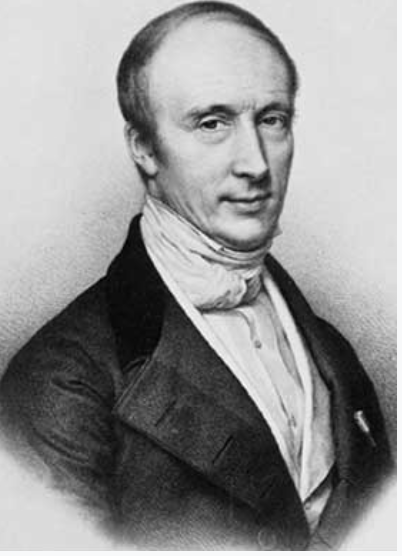
Augustin-Louis Cauchy was born in Paris, France on August 21, 1789, just a few weeks after the storming of the Bastille that launched the French Revolution. Cauchy’s father, who had been a high official in the Parisian Police of the Ancien Régime fled with his family for their lives. During the next 4 years, the family had barely enough money for food and survived on bread and whatever food they could scrounge. After the turmoil had abated, the Cauchys returned to Paris and reconnected with previous family friends that included Pierre Simon de Laplace and Louis Lagrange.
Lagrange urged Cauchy’s father to provide his son with a thorough eduction in languages before embarking upon a serious study of mathematics. Consequently, Augustin-Louis was enrolled at the École Centrale du Panthéon in 1802 where he spent two years studying classical languages, followed by a year of classes in mathematics. Between 1805 and 1807, he received his instruction from world famous mathematicians and physicists at the École Polytechnique.
His exceptional performance at the engineering school École des Ponts et Chaussées earned him employment at the port of Cherbourg where Napoleon was preparing his fleet of ships for an invasion of England. While engaged in this job, Augustin-Louis was also immersed in the study of Laplace’s Mécanique Céleste and Langrange’s Théorie des Fonctions. Describing the rigors of this heavy commitment, he wrote:
I get up at four o’clock each morning and I am busy from then on. … I do not get tired of working, on the contrary, it invigorates me and I am in perfect health…
During this time, he explored properties of geometric solids, proving in 1811 and 1812, two theorems relating the angles between adjacent faces of convex polyhedra and the angles of the faces. In September of 1812 he returned to Paris with a condition described as a nervous breakdown that manifested in severe depression. In 1815, when Napoleon was defeated at Waterloo, Louis XVIII re-established the Académie des Sciences and appointed Cauchy to that institution. By 1818, Louis-Augustin had established a reputation by proving Fermat’s polygonal number theorem, and he was appointed full professor at the École Polytechnique.
It was in the period between 1824 and 1830, that Cauchy made his greatest contributions, including the development of complex function theory, that rests on the equation known as Cauchy’s integral theorem and its corollary, known as the Residue theorem. In his seminal book Cours d’Analyse Cauchy built rigor into previously intuitive ideas by developing what became known as epsilon-delta proofs. This resolved many of the issues dealing with ambiguities in the concept of infinitesimals introduced by Newton.
The last years of Cauchy’s life involved some bitter disputes pertaining to priority of ideas, political perspectives and a host of other issues that often encumber people of high talent and competitive instinct. When he died at the age of 67, Augustin-Louis left behind a body of work explicated in the 27-volume Oeuvres complètes d’Augustin Cauchy.
